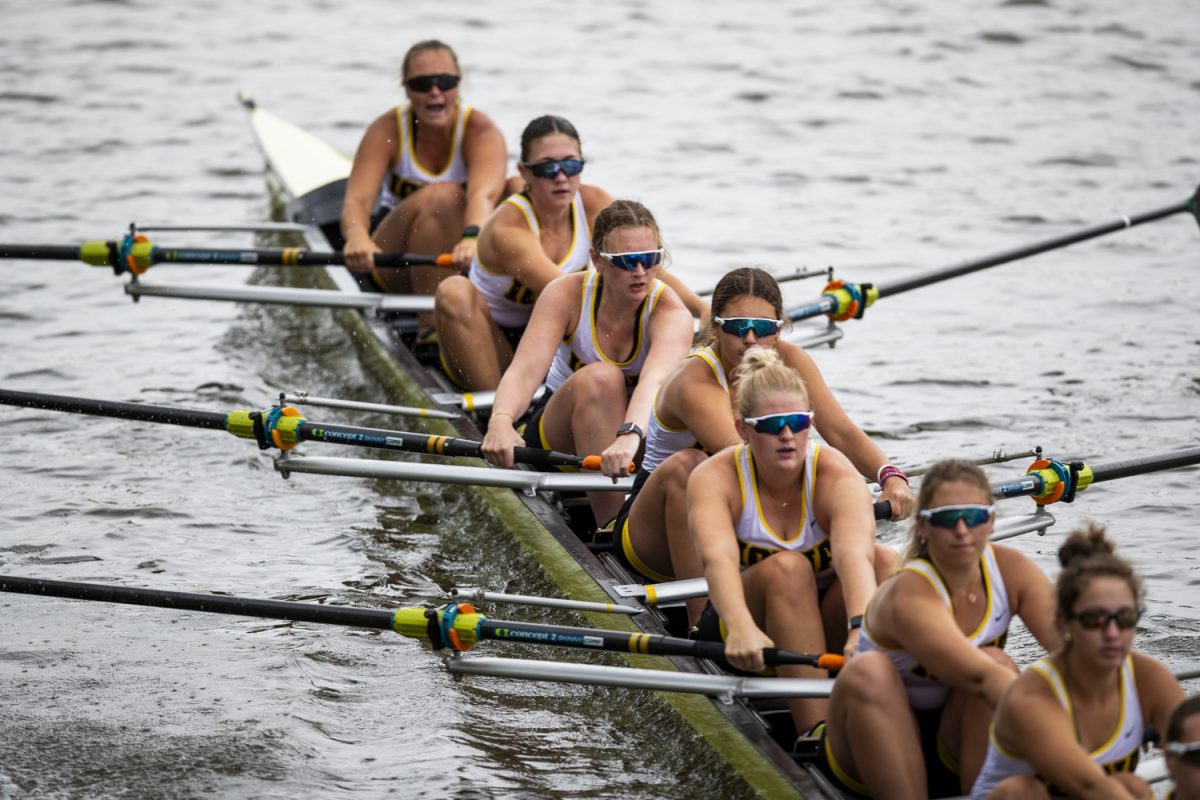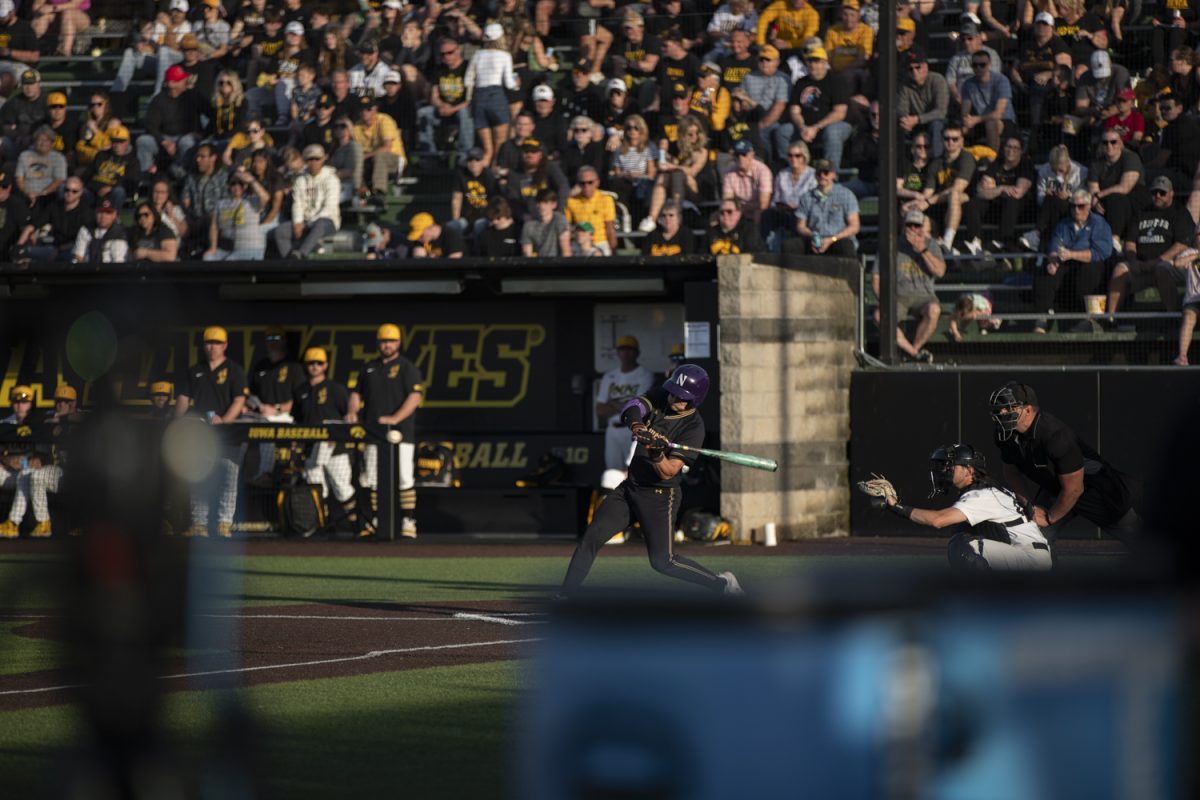Many people joke that the term “student-athlete” should be reversed to show where the athletes’ true priorities lie.
Don’t tell that to a cross-country runner at Iowa, though.
The Iowa men’s cross-country team has compiled a 3.05 grade point average, one of the highest of all the Hawkeye sports. The Hawkeyes were honored by the NCAA for the fourth straight year for having a GPA in the top 10 percent of the nation’s cross-country teams. Last February, the squad was also named to the U.S. Track & Field and Cross-Country Coaches Association all-academic team.
It’s no coincidence the cross-country squad excels academically. Head coach Larry Wieczorek puts more stress on studies than anything else, citing an academic learning center as one of the biggest reasons his athletes excel in the classroom.
“Academics are certainly something we stress as a staff,” he said. “I really give credit to the students, because they’re the ones doing the work. But we have great academic support here at Iowa — that’s the Learning Center. The people there are trained to support and guide our athletes, and they really do a great job.”
The Gerdin Athletics Learning Center, located behind Slater Hall, is where freshman athletes are required to spend a certain number of hours each week studying. The center provides computers, tutors, and a quiet environment to study. After freshman year, student-athletes are not required to attend weekly, but they are encouraged to still visit whenever they need help.
Still, the Learning Center can only be successful if the athletes use its tools properly. Senior long-distance runner Chase Kadlec believes the center was a good step to becoming an excellent student and improving his GPA.
“[The Learning Center] is beneficial to a lot of athletes who lack motivation,” he said. “It’s a better alternative than the library. It’s one of the first places they take you on recruiting visits. They let you know that you’re not only competing at a high level, but that you are doing work at a high level, too.”
It makes sense that cross-country runners may seem to take their studies more seriously than athletes in other sports: Few runners compete professionally again after college, he said.
This could be why runners not only excel in the classroom but have difficult majors that accompany the success. Kadlec, a finance and accounting major is also an academic All-Big Ten honoree and earned all-academic honors from the U.S. Track & Field and Cross-Country Coaches Association.
He said he has been able to earn the accolades because his education is more important than running.
“Our education is something the coaches encourage us to put first,” he said. “It provides us with a good base so we can focus on running. It’s pretty clear our education is more important, because a vast majority of us won’t compete past school.”
Recent graduate Sam Bailin is another runner who has had success in the classroom. The former Hawkeye athlete hung up his running shoes after graduating last spring, and he is now enrolled in the UI Carver College of Medicine. He believes the early stress on education helped him and others succeed in the classroom while undergraduates.
“I always thought it would be impossible to be a Division-I athlete and a student,” he said. “I quickly realized, however, that’s not the case at all. People must be willing to sacrifice other things for study time, and that’s one of the first things you learn when you get on campus and at the Learning Center.”
Cross-country runners may be the hardest-working athletes on campus when academics are added in the mix, Wieczorek said.
“These are serious students, with serious majors, who are serious about their sport,” he said.






